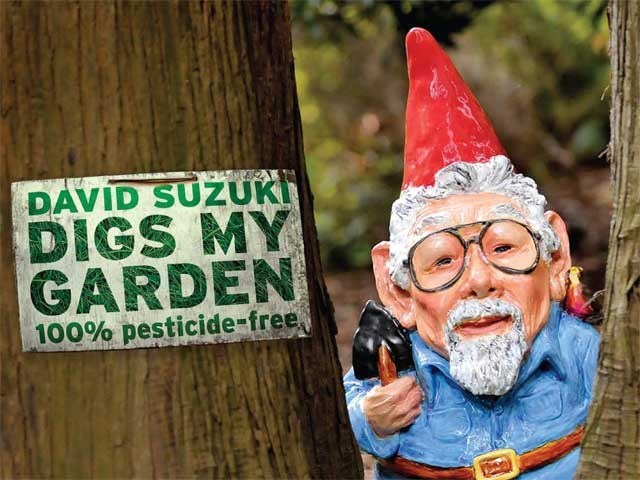The spring that thought it was winter and the summer we all
thought might never be is here and Whistlerites are getting down and dirty, in
the garden that is.
With a comprehensive Pesticide Bylaw and a citizenry committed
to clean and green gardening, Whistler’s gardens grow without the aid of
performance enhancing drugs — pesticides and herbicides. In Whistler, we
do not entertain a chemical romance with our property… we make love to our
yards in a kinder, gentler manner.
According to an Ipsos-Reid survey conducted in February,
Whistler residents have strong attitudes toward the use of pesticides in our community
through using non-chemical methods in their yards and are very open to an
all-out provincial ban on the sale of many cosmetic pesticides.
The study was conducted on behalf of the Canadian Cancer
Society. In total, 3,200 telephone interviews were conducted with randomly
selected adult (18 years or older) British Columbians. Province-wide, 85 per
cent of those with a lawn or garden said they would be “very” or “somewhat”
likely to try using alternative practices instead of chemicals or pesticides if
provided with the right information. Compared to all other B.C. communities,
Whistler residents are the most likely to try alternative practices if provided
with the right information (89 per cent).
As well, the study reveals Whistler residents are the most
supportive of cosmetic pesticide legislation, with 84 per cent supporting
legislation that would phase-out the use of cosmetic pesticides and 82 per cent
supporting legislation that would restrict the use and sale of these products.
Protecting human and natural ecosystem health are the two main
reasons Whistler Council adopted Bylaw 1822, 2007 in February. The bylaw, which
prohibits the nonessential or cosmetic use of pesticides, took effect
immediately for all RMOW property within Whistler's boundaries and on
residential private lands as of December 31, 2008. Only those permitted
pesticides listed within the provincial Integrated Pest Management Regulation
will be exempted from this regulation and approved for ongoing use. Anyone who
applies pesticides is potentially affected, including homeowners, renters,
landscape professionals and yard care companies, and contravention could mean a
$250 fine — not to mention the poisonous impact on the natural
environment and human health.
Canadian research has shown consistent links between pesticide
exposure and serious illnesses such as cancer, reproductive problems and
neurological diseases, among others. Importantly, although the review found
consistent evidence of the health risks to patients with exposure to pesticides,
it specifically highlighted the fact that children are particularly vulnerable
to pesticide exposure.
Whistler2020 community task forces, particularly Water, Natural
Areas, Health & Social and Built Environment, have been creating actions
designed to limit and eventually phase out chemical lawn and garden care in
Whistler. This bylaw is a perfect example of how the community’s work to bring
an issue forward through the task force process has resonated with RMOW staff,
council and other community partners. Last year, the Whistler2020 Water Task
Force recommended all Whistler golf courses complete the Audubon International
Cooperative Sanctuary Program for Golf Courses. A major component of the
certification deals with pesticides. The Chateau Whistler Course has the
certification, while the Nicklaus North and Whistler courses are in the process
of becoming certified.
Over 100 communities in Canada have enacted, or are in the
process of developing similar pesticide regulations. In B.C., 12 other
municipalities have similar pesticide regulation bylaws either fully adopted or
in draft form, including Vancouver, the District of Maple Ridge, City of
North Vancouver, West Vancouver, Port Moody, Comox and Gibsons. To showcase
your chemical-free garden, go to Whistler2020.ca and click on the garden gnome
that looks like David Suzuki to enter photos of your garden in the “David
Suzuki Digs My Garden” contest. Some lucky entries may even end up with a
Suzuki gnome dropping in.
The pesticides most commonly used on lawns and gardens include herbicides
(for killing weeds and plants), fungicides (for destroying fungi), and insecticides
(for killing insects). The RMOW’s dedicated horticulture team has been
maintaining municipal parks and gardens without pesticides for years. Anyone in
the community who wants to tap that expertise can email
pbeswetherick@whistler.ca
.
To view the entire Pesticide bylaw, go to Whistler.ca/Residents/Health and Safety. To learn more about other actions that are moving our community toward Whistler2020 or to get involved, visit www.whistler2020.ca .




